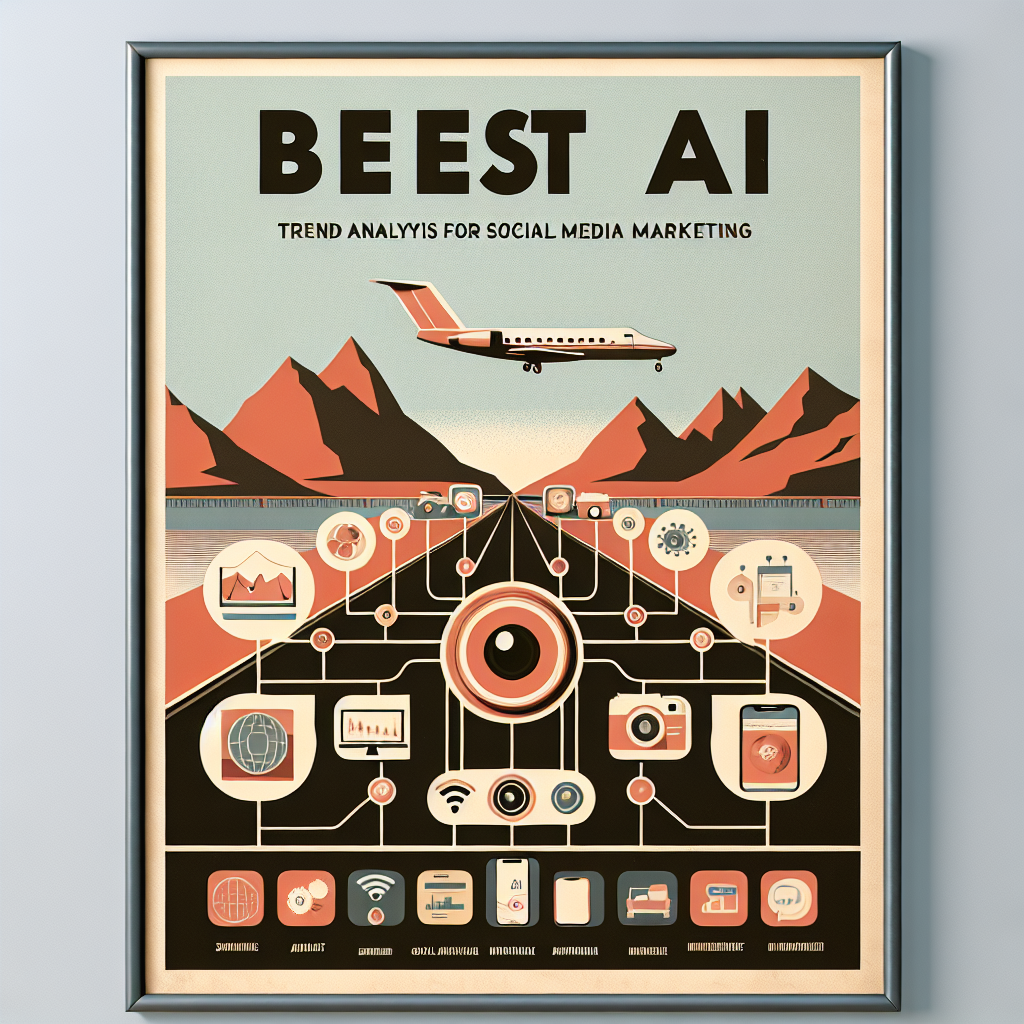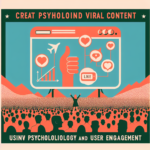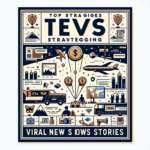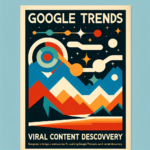Introduction to AI Tools for Social Media Optimization
Keeping up with the constant changes in the world of social media can be a daunting task. Can you imagine doing it without the help of Artificial Intelligence (AI)? With AI handling tasks such as analytics and engagement, creating impactful content becomes a cakewalk.
In this blog post, we’ll explore all about why AI tools are indispensable for social media success. You’ll gain insights on how these tools help streamline tasks, increase growth, and improve engagement rates. Wondering which AI tools are best for social media? We’ll cover that too, ensuring you’d be well-equipped to select the right tools for your brand.
Finally, we’ll cover how to select the right AI tool and compare available options on the market. By the end of this post, you’ll have a much clearer vision of the important role AI plays in social media analytics and marketing.
After all, as marketing pioneer John Wanamaker once said, “Half the money I spend on advertising is wasted; the trouble is I don’t know which half.” With AI, this concern becomes negligible.
Best AI Tool for Social Media
Why AI Tools Matter in Social Media
Artificial intelligence tools are increasingly essential for social media success. They offer automation, efficiency, and insights that human analysis might miss.
These tools help streamline tasks like content scheduling, analytics, and engagement. Using AI on social media can lead to significant growth and higher engagement rates.
Top AI Tools to Consider
Several AI tools stand out in social media:
- Hootsuite Insights: Known for its detailed analytics, helping brands understand vast amounts of data from different social media platforms.
- Loomly: Offers a user-friendly platform for content creation and scheduling, backed by AI-driven suggestions.
- Canva: While primarily a design tool, it leverages AI to suggest designs and layouts, important for creating eye-catching social media content.
- Cortex: Uses AI to predict the success of future posts based on past performance and industry trends.
Important Features to Look For
When choosing an AI tool, consider these features:
- Analytics: Look for tools that provide comprehensive insights on audience behavior and engagement metrics.
- Customization: Ensure the tool allows for tailoring strategies to fit your brand’s needs.
- Integration: Check for compatibility with existing marketing tools and platforms.
- Usability: Opt for a tool that is easy to handle and use without extensive training.
AI Tool Performance Comparison
Here’s a quick look at how some of the leading AI tools compare across key criteria:
| Tool | Analytics | Usability | Integration |
|---|---|---|---|
| Hootsuite Insights | Highly comprehensive | Moderate | High |
| Loomly | Moderate | Easy | Moderate |
| Canva | Basic | Easy | High |
| Cortex | Advanced | Moderate | Moderate |
Making the Right Choice
Identifying the best AI tool depends on your specific needs. While Hootsuite Insights may be superior for data-heavy campaigns, Loomly is often the preferred choice for simplicity and ease of use. Canva, on the other hand, is ideal for visual content creation.
It’s essential to evaluate what aligns with your operational goals. To explore more about the best AI tools available, you may check HubSpot’s detailed analysis here.
Role of AI in Social Media Analytics
Key Advantages of AI in Social Media
Harnessing the power of AI in social media analytics has some notable benefits. First, it improves decision-making since the insights derived from raw data are objective. Second, AI streamlines content management, enabling brands to maintain a consistent presence on various platforms. Finally, it personalizes user experience, fostering better engagement.
The AI Edge
AI adds a new level of prowess in social media analytics by providing invaluable insights that guide marketing strategies:
- Predictive Analytics: AI can predict trends based on historical data, contributing to proactive planning.
- Sentiment Analysis: Through natural language processing, AI can assess public opinion about your brand.
- Customer Segmentation: AI groups customers based on their behavior, preferences, and interaction with your brand.
Additional Noteworthy AI Tools
While the AI tools mentioned previously are robust, other options possess unique capabilities:
- Buffer: Augments social media management with its smart analytics feature, generating actionable insights.
- Brandwatch: Prized for its capacity to monitor brand mentions and perform sentiment analysis.
- Crimson Hexagon: Boasts of an AI-driven platform that provides deep social insights.
AI Tools: Pricing Consideration
Aside from the features, another important element you need to consider is the cost. Specific factors affect the pricing of AI tools:
- Features: More sophisticated features often come with higher pricing.
- Subscription Type: Most AI tools offer different pricing tiers based on the package.
- Scale of Use: Prices can also vary according to the scale and frequency of usage.
AI Tool Selection: Expert Tips and Guidance
To further assist you in selecting the best tool, here are some expert tips:
- Understand your needs: Align your objectives and requirements before choosing a tool.
- Opt for a demo: Majority of AI tool vendors offer a demo. Take advantage of this to assess the tool’s efficiency and compatibility with your needs.
- Check for ongoing customer support: Since AI tools can be complex, having reliable customer support is vital for troubleshooting and learning.
To get a comprehensive understanding of what each tool offers, you can refer to G2’s comparison chart where you can compare different AI tools’ features, pricing, and customer reviews.
Most Effective Social Media Marketing Tool
Identifying the Best Social Media Marketing Tools
Choosing the most effective social media marketing tool depends on several factors like business goals, budget, and the specific needs of your audience. While AI tools provide significant automation advantages, various other tools come into play for optimal social media strategies.
Essential Features for Top Social Media Tools
For a tool to be effective in social media marketing, it should offer:
- Content Scheduling: Allows seamless content planning and ensures a consistent posting schedule.
- Engagement Tracking: Keeps track of how well your content performs and the level of audience interaction.
- Social Listening: Monitors brand mentions and customer feedback across various platforms.
- Campaign Measurement: Evaluates the effectiveness of your marketing efforts through detailed analytics.
Leading Tools in Social Media Marketing
In addition to AI-specific tools, various platforms offer broader marketing functionalities to enhance your social media strategy:
- Sprout Social: Known for offering robust social listening tools and analytics, ideal for comprehensive engagement tracking.
- Buffer: A fan favorite for its ease of use, Buffer offers streamlined scheduling and basic analytics to help manage social media presence.
-
HubSpot: Provides an integrated platform for social media management alongside CRM and marketing features, making data-driven decisions simpler.
Check out their detailed features here.
Strategizing with Social Media Tools
An effective social media marketing strategy involves more than choosing the right tools. Here’s how you can optimize your strategy:
- Audience Analysis: Understanding your audience demographics and preferences is crucial for creating targeted content.
- Content Diversification: Utilize different content formats like videos, stories, and posts to maintain interest and engagement.
- Feedback Utilization: Actively monitoring and responding to feedback can improve customer satisfaction and brand loyalty.
Trends Influencing Social Media Marketing in 2023
Here are some trends shaping social media marketing this year:
- Short-Form Video Content: Platforms like TikTok and Instagram Reels drive increased engagement with brief, compelling videos.
- Social Commerce: Direct shopping experiences within social media apps are becoming more prevalent.
- Interactive Content: Utilizing polls, quizzes, and interactive stories to engage with audiences more deeply.
Additional Considerations
When selecting tools and crafting strategies, also keep in mind:
- Budget Constraints: Align your choice of tools with your budget while ensuring you get necessary features.
- Scalability: Choose tools that can grow with your business needs.
- Integration Capabilities: Ensure your tools can integrate seamlessly with other platforms you use, like CRM systems.
The Best AI Tool for Marketing
Why AI Tools Are Essential in Marketing
AI tools are becoming indispensable in marketing due to their ability to streamline operations, predict consumer behavior, and optimize customer interactions. They provide marketers with valuable insights and actionable data to enhance their strategies.
These tools assist in automating repetitive tasks like data analysis, personalize customer experiences across platforms, and enable real-time engagement and support.
Top AI Tools for Marketing
When it comes to selecting AI tools for marketing, several stand out for their unique capabilities:
- Google Analytics Intelligence: An enhanced version of Google Analytics, it offers AI-driven insights for better understanding audience behavior and trends.
- Marketo Engage: A comprehensive marketing automation tool, powered by AI to drive personalized campaigns and streamline customer engagement.
- ChatGPT by OpenAI: Utilized for creating human-like interaction in chatbots, enhancing customer service, and generating content ideas.
- Salesforce Einstein: Delivers predictive analytics and recommendations to improve sales and customer service efforts.
Key Features to Evaluate in AI Marketing Tools
When choosing an AI marketing tool, it’s important to look for certain features to maximize impact:
- Predictive Analytics: Tools that forecast trends and customer behavior for proactive strategy formulation.
- Customer Insights: A tool must offer detailed insights into customer preferences and interactions.
- Automation Capabilities: Ensure the tool can automate repetitive tasks like email marketing and social media posting.
- Scalability: Select a tool that can grow and adapt to your expanding business needs.
Performance Comparison: AI Tools in Marketing
Let’s compare some leading AI marketing tools based on key criteria:
| Tool | Predictive Analytics | Customer Insights | Automation |
|---|---|---|---|
| Google Analytics Intelligence | Strong | Comprehensive | Basic |
| Marketo Engage | Moderate | Advanced | Robust |
| ChatGPT by OpenAI | N/A | Moderate | Moderate |
| Salesforce Einstein | Advanced | Strong | Robust |
Additional AI Tools Worth Considering
Besides the top contenders, other AI tools bring significant value:
- HubSpot: Offers a CRM, marketing automation, and customer service platform enhanced with AI features; explore more here.
- Awario: An AI-driven social listening and brand monitoring tool that quickens response time and engagement.
- IBM Watson Marketing: A robust tool that harnesses AI to refine your marketing campaigns through data-driven insights.
Long-term AI Trend in Marketing
Looking ahead, AI is expected to continue transforming marketing. Some upcoming trends include:
- Hyper-Personalization: Leveraging AI for incredibly personalized marketing experiences at an individual level.
- AI Voice Assistants: These will become integral in customer interaction and service channels.
- Visual and Voice Search Optimization: AI will further enhance search engine strategies by including visual and voice search capabilities.
Considerations for Selecting Marketing Tools
When choosing AI tools for marketing, consider these factors:
- Budget: Select tools that deliver maximum value within your financial constraints.
- Integration: Ensure the tool seamlessly fits with your existing tech stack for cohesive functionality.
- Customer Support: Reliable, ongoing support is vital to ensure smooth tool operation and troubleshooting.
Concluding the Use of AI Tools in Social Media and Marketing
The expanding role of artificial intelligence in social media and marketing is undeniable. By automating tasks and providing insights beyond the reach of human analysis, AI tools like Hootsuite Insights, Loomly, Canva, and Cortex offer significant potential for driving social media success.
These applications improve decision making, streamline content management, and enable personalization of the user experience. Other noteworthy tools such as Google Analytics Intelligence and Marketo Engage bolster these capabilities within a broader marketing context, predicting consumer behavior and optimizing customer interactions.
Selecting the best AI tool hinges on a clear understanding of your specific needs and objectives. Factors like budget, scalability, usability, integration capabilities, and the presence of ongoing customer support should guide your choice.
Frequently Asked Questions – FAQs
What are the benefits of using AI tools in social media and marketing?
AI tools automate tasks, provide valuable insights, predict trends, and personalize user experiences, thus improving decision-making and efficacy.
Which AI tools can I consider for my social media campaigns?
Hootsuite Insights, Loomly, Canva, and Cortex are popular choices for managing social media.
What features should I look for in an AI marketing tool?
Key features include predictive analytics, detailed customer insights, automation capabilities, and scalability to meet evolving needs.
How do I choose the right AI tool for my business?
Understand your specific needs, budget, and objectives. Evaluate the tool’s features, pricing, and customer reviews, and ensure it integrates well with your existing tech stack.






